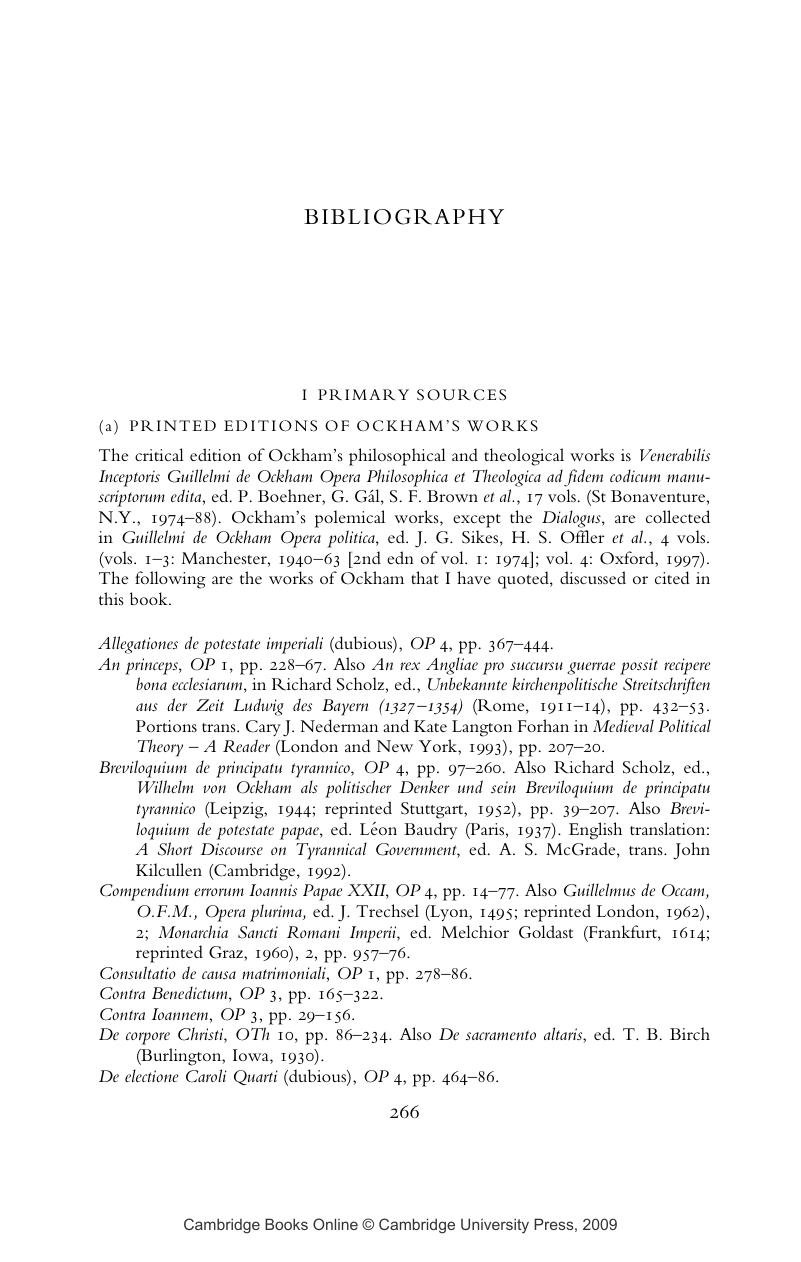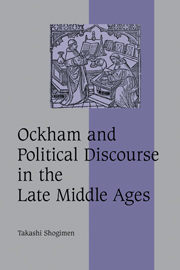Book contents
- Frontmatter
- Contents
- Preface
- List of abbreviations
- INTRODUCTION
- 1 THE POVERTY CONTROVERSY
- 2 A GENERAL THEORY OF HERESY
- 3 THE PROBLEM OF PAPAL HERESY
- 4 PAPAL PLENITUDO POTESTATIS
- 5 PETRINE PRIMACY
- 6 THE DEFENCE OF HUMAN FREEDOM
- Appendix: Ockham's ‘Dialogus’ and Marsilius' ‘Defensor pacis’
- Bibliography
- Index
- Cambridge Studies in Medieval Life and Thought Fourth series
- References
Bibliography
Published online by Cambridge University Press: 23 July 2009
- Frontmatter
- Contents
- Preface
- List of abbreviations
- INTRODUCTION
- 1 THE POVERTY CONTROVERSY
- 2 A GENERAL THEORY OF HERESY
- 3 THE PROBLEM OF PAPAL HERESY
- 4 PAPAL PLENITUDO POTESTATIS
- 5 PETRINE PRIMACY
- 6 THE DEFENCE OF HUMAN FREEDOM
- Appendix: Ockham's ‘Dialogus’ and Marsilius' ‘Defensor pacis’
- Bibliography
- Index
- Cambridge Studies in Medieval Life and Thought Fourth series
- References
Summary

- Type
- Chapter
- Information
- Ockham and Political Discourse in the Late Middle Ages , pp. 266 - 288Publisher: Cambridge University PressPrint publication year: 2007



